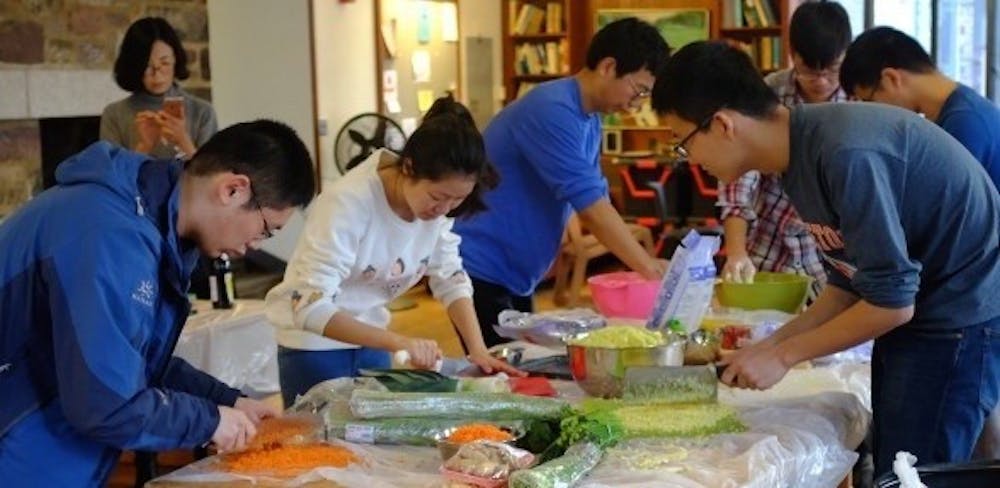Over the past year, the Trump administration has placed increasing scrutiny on Chinese nationals studying at U.S. universities, particularly those in scientific and technological fields.
The White House’s new focus on Chinese students is a reaction to allegations that China has violated U.S. intellectual property laws and pressured U.S. companies based in China to share their technology. The initiative to restrict granting student visas to Chinese nationals was in part intended to punish the Chinese government for these alleged infractions, which came as the White House was already wrangling with China over tariffs, trade, and North Korea.
Although the White House had not enacted any kind of blanket ban on student visas, the State Department began restricting visas for Chinese graduate students in sensitive research fields from five years to one year on June 11, 2018.
Increased scrutiny regarding Chinese students could lead to a crackdown on visas that would impact the over 350,000 Chinese students currently studying at U.S. universities, including the 601 Chinese nationals that were attending the University as of the 2017–18 school year, according to the Davis International Center.
“Starting from this summer, things got worse,” said Mengya “Mia” Hu, a graduate student in the mechanical and aerospace engineering department and the vice president of the Princeton Graduate Society of Engineers.
Although Hu’s research is not sensitive, she said that the name of the Mechanical and Aerospace Engineering department “sounds sensitive for the visa officer.” Hu also said that some of her friends at other universities have been unable to re-enter the United States after returning home to China for summer break.
“This seriously influences students’ work and life! After knowing [my friends’] story, I decided not to go home before graduation, and even after. I am so upset about this,” she said. “We are emotionally hurt.”
Hu emphasized that most Chinese students studying abroad are just normal, hardworking students and warned that more Chinese nationals may start attending universities in other countries.

According to an anonymous attendee at a dinner President Donald Trump hosted this August at his private golf club in Bedminster, N.J., Trump said in reference to Chinese students that “almost every student that comes over to this country is a spy,” Politico reported.
University spokesperson Ben Chang said that the University will not comment on news reported by media organizations like Politico and The New York Times.
“The University maintains its commitment to building a diverse student body, both undergraduate and graduate, that draws on a wide range of talent, experiences, and backgrounds from home and abroad,” he said.
In contrast, a report released this June from the White House Office of Trade and Manufacturing called Chinese nationals studying in the United States “non-traditional information collectors” who posed a risk to U.S. intellectual property. The report accuses the Chinese government of using Chinese students and intellectuals to engage in corporate espionage, sometimes against their will. One part of the reports reads, “The national and economic security risks are that the Chinese State may seek to manipulate or pressure even unwitting or unwilling Chinese nationals into becoming non-traditional information collectors that serve Beijing’s military and strategic ambitions.”

During a February 2018 Senate Intelligence Committee hearing FBI Director Christopher Wray warned that the FBI observed “the use of nontraditional collectors, especially in the academic setting, whether it’s professors, scientists, students,” in all academic disciplines nationwide.
Wray said that “the level of naivete on the part of the academic sector” had helped create this issue.
Although Wray characterized Chinese students studying any discipline in the United States as a potential threat, Peng Wang, a graduate student in the economics department, asserted that the bulk of the scrutiny has fallen on students in technology and the sciences.
“This new visa policy doesn’t affect us much,” Wang said about economics students.
“Based on what I know, students in engineering schools doing ‘hard sciences’ are facing a lot more difficulty with respect to visas, and you know, we are the ‘soft’ ones,” he added.
Sunny Qin ’19 said that getting a visa has become more difficult for undergraduates since she applied for her student visa in 2015.
“I remember when I applied for a U.S. study visa back in 2015, it was not that hard, in the sense that I showed them my admission letter, along with financial information from my parents, and I just got the visa really quickly,” Qin explained.
She noted that her experience might be different from students who were admitted to the University recently, noting that they “had a much bigger problem getting a student visa, in the sense that they required way more documents.”
Jiarong Wu, a graduate student in the MAE department, said that his visa was “checked” for three weeks because the technical-sounding name of his program. Wu said that while he was upset, he had heard of worse cases and didn’t complain. But he said he’s worried about how this change will impact his plans for the year ahead.
“The immediate problem is that I plan to go to a meeting in France next summer, which means after that I have to go back to China to update my visa before I can re-enter the United States,” Wu explained.
“I have no idea how things will be like at that time. Maybe I will give up going to that meeting if it gets worse,” he said.
Wu said he and his fellow Chinese students are concerned about the uncertainty this new restriction introduces into their plans for the academic and professional futures.
“I do hope things don’t get worse,” he said.








